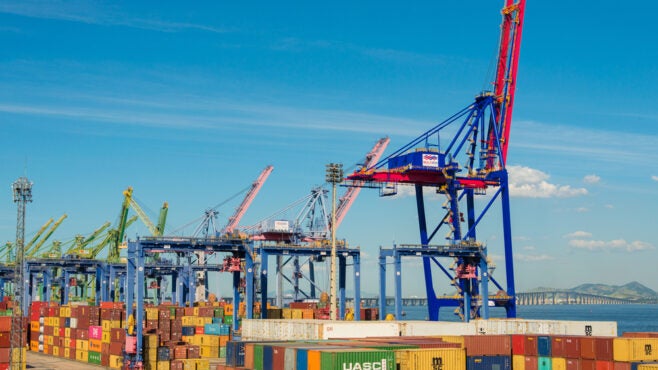The rapid replacement of fossil fuels with renewable fuels – based on green hydrogen and advanced biofuels – could slash 80% off CO2 emissions in international shipping by 2050, says a report from the International Renewable Energy Agency (IRENA).

Shipping containers at a port in Rio de Janeiro, Brazil. (Photo by Donatas Dabravolskas via Shutterstock.com)
The decarbonisation of maritime transport, which is responsible for 3% of global greenhouse gas emissions, must involve a combination of energy efficiency and renewable fuels, the report says. While energy efficiency measures must begin instantly, renewable fuels are expected to make up 70% of the sector’s energy mix by 2050.
In the short term, biofuels will play a key role, but they are only expected to represent 10% of the energy mix in 2050. Green hydrogen-based fuels are set dominate in the long term, representing 60% of the energy mix in 2050.
E-methanol and e-ammonia are the most promising green hydrogen-based fuels, the report says, and 183 million tonnes of renewable ammonia is expected to be needed by 2050. The global ammonia industry already produces an estimated 180 million tonnes of ammonia annually.
The report calls on policymakers to impose carbon pricing to discourage the use of fossil fuels.



